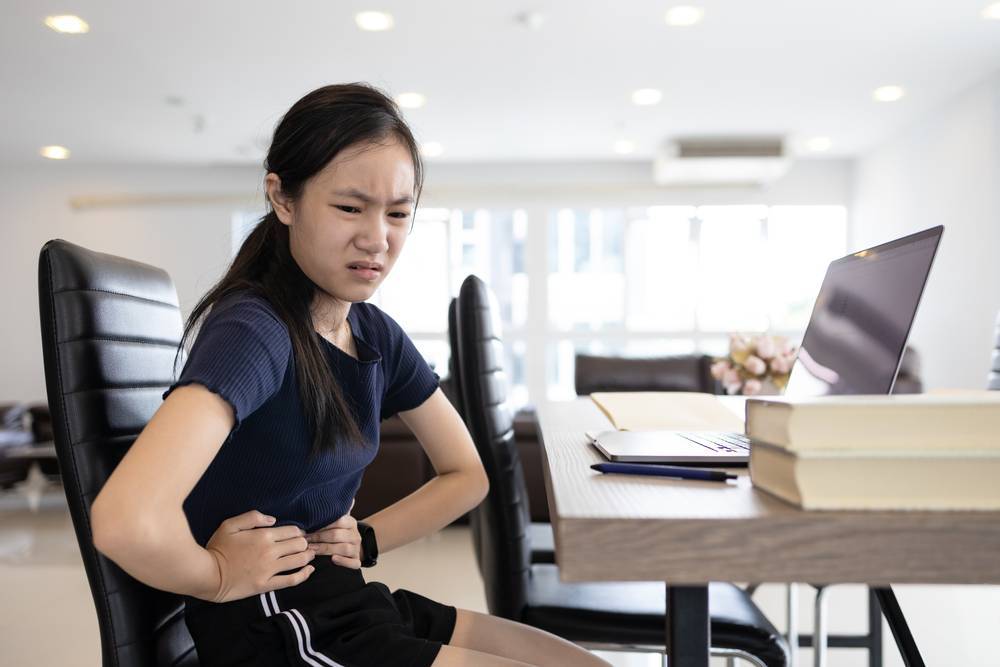If you are suffering from frequent and unexplained digestive issues, such as bowel habits changes and abdominal discomfort, the most recommended advice would be to immediately visit a gastroenterologist, a doctor who specialises in gut health. However, if you have never visited one or do not even know what a gastroenterologist is, you might even be unsure of what symptoms warrant a gastroenterology visit.
In this article, we have compiled seven symptoms that signify an immediate visit to a gastroenterologist.This article first appeared in gutCARE Blog.
What is a gastroenterologist?
A gastroenterologist is a doctor that specialises in the diseases and disorders found in the gut system, from the oesophagus to the stomach all the way to the anus, as well as the liver, gallbladder, bile ducts, and pancreas.
The gut diseases and disorders that a gastroenterologist treats include:
- Gastroesophageal Reflux Disease (GERD)
- Haemorrhoids
- Inflammatory Bowel Disease (IBD)
- Irritable Bowel Syndrome (IBS)
- Ulcers
- Pancreatitis
- Heartburn
- Diarrhoea, Constipation, and Blood in stools
Using various diagnostic procedures, such as colonoscopy, endoscopy, and biopsy, gastroenterologists are able to provide better treatment for colon cancer and other diseases mentioned above.
When should you visit a gastroenterologist immediately?
Here are seven symptoms that warrant an immediate gastroenterology visit:
1. Chronic diarrhoea
From certain medications to food consumption and infection, many factors lead to chronic diarrhoea. However, if you pass out stools that are regularly waterier, it is a sign to visit a gastroenterologist.
Chronic diarrhoea is a sign of several digestive disorders, such as IBD, Small Intestinal Bacterial Overgrowth (SIBO), or IBS. Fortunately, they are treatable.
2. Frequent or severe heartburn
Experiencing heartburn every now and then is not a major cause for concern and can generally be managed on your own. The major cause for concern happens when you experience heartburn a couple of times in a single week. This means that you could be suffering from GERD, which over time, can lead to permanent damage and scarring of your oesophagus lining.
When left untreated, the damage leads to a problem with swallowing, the development of painful ulcers, and an increase in the risk of getting oesophageal cancer.
3. Chronic constipation
Although the frequency of bowel movements varies between individuals, it is considered constipation if you clear your bowel less than three times a week or if your bowel movements are tiny or difficult to clear.
While usually not a major cause for concern, if you have been experiencing constipation for more than a couple of weeks, it is a sign to visit a gastroenterologist. They can help to assess the cause and prescribe medication as well as recommend lifestyle changes to help ease your situation.
4. Unexplained bloating
Bloating occurs when there is an excess of gas production, gas trapped in your colon, or hypersensitivity to gas. Constipation, too, leads to bloating as the longer the stool stays in the colon, the more gas is being produced as a byproduct of the fermentation by gut bacteria. Bloating is also a sign of IBS, such as SIBO, gastroparesis, and lactose intolerance.
5. Rectal bleeding
If you spot blood as you flush your toilet or on your toilet paper, chances are you have rectal bleeding. One of the most common causes of rectal bleeding is haemorrhoids, which are highly treatable with over-the-counter medications. However, do not assume that rectal bleeding only means a bout of haemorrhoids. Any moment you spot blood in your stools, it is critical to visit a gastroenterologist. Other causes of rectal bleeding that are dangerous include colorectal cancer.
6. Severe or sudden abdominal pain
Stomachache is really common in our everyday life. However, if you suffer from sudden and severe stomach pain that lasts for hours, a trip to a gastroenterologist is necessary. The sudden or severe stomach pain could mean a peptic or stomach ulcer, which is a sore that develops in the initial portion of your small intestine or on your stomach lining. The pain is further enhanced, especially after mealtime. When left untreated, it could lead to scarring and swelling of your digestive tract, which will end up in blockages.
Chronic stomach pain could also be a sign of pancreatitis, liver disease, or gallstones.
7. You are due for a colonoscopy
If you are age 45 and above or have a family history of colorectal cancer, an annual colonoscopy is highly recommended. However, if the initial findings are normal and there is no further risk, you might only require to do a colonoscopy once every ten years.
Conclusion
While a colonoscopy sounds uncomfortable, it is able to detect disorders and diseases early, thus saving your life. These are seven of the symptoms or signs that warrant an immediate gastroenterology visit. It is recommended that you make a list of symptoms you have experienced as well as be aware of any medical history before your visit to the gastroenterologist.
GutCare is a gastroenterology clinic that offers a wide range of gut-related services as well as hepatitis B treatments. For more information, you may visit https://www.gutcare.com.sg/.

